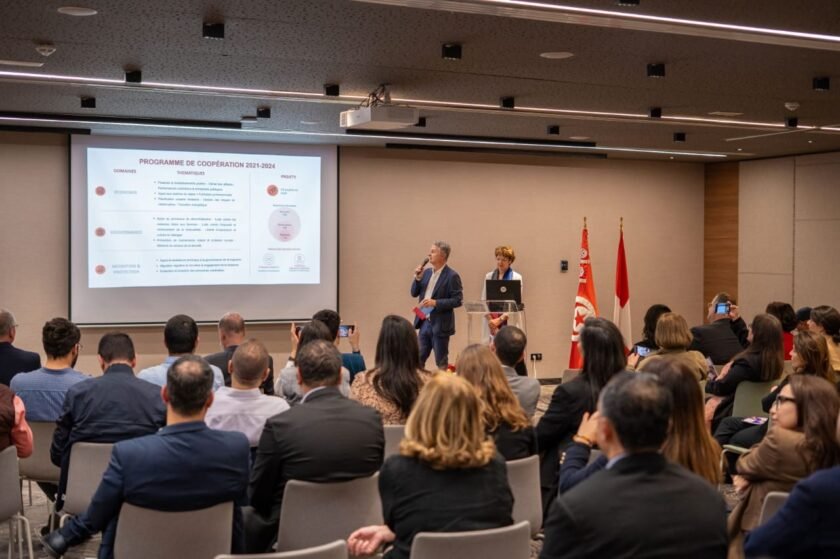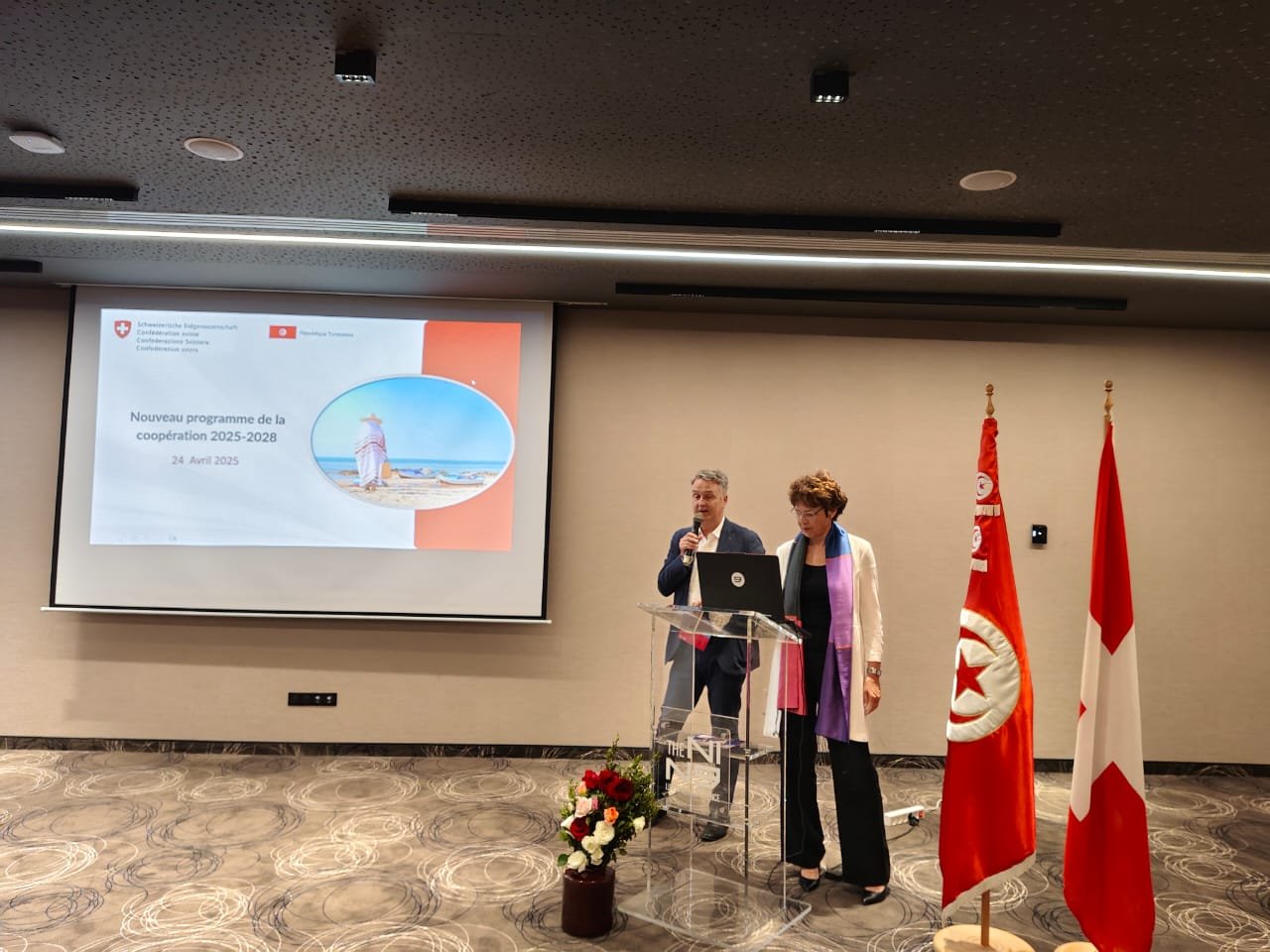The Swiss cooperation program is worth 211 million dinars
– Socioeconomic development, disruptive change and migration governance are key themes of this program
The Swiss cooperation program in Tunisia for the period 2025-2028, worth a total of 60 million Swiss francs, equivalent to 211 million Tunisian dinars, was announced on Thursday evening in Tunis.
The four-year program has two main objectives: supporting prosperity and stability, each of which is subdivided into sub-themes. The first includes supporting reforms, competitiveness, employment, training and entrepreneurship. In contrast, the second includes supporting dialogue and consultation between the state, the private sector and civil society organizations to achieve social cohesion, consultations on migration, local development, and supporting vulnerable groups to access basic services.
// A program in line with Tunisia’s development vision for 2035
Swiss Ambassador to Tunisia and Libya, Joseph Ringli, explained in a statement during the media meeting, which was attended by several partner organizations, journalists, and a delegation from federal structures concerned with cooperation, that his country and Tunisia have deep relations of cooperation based on the principle of mutual respect dating back more than fifty years.

Within the framework of the commitment of the Swiss Federal Government to support Tunisia’s development efforts, as part of its international cooperation strategy aimed at saving lives, ensuring access to basic services, contributing to achieving economic and sustainable development, protecting the environment and combating climate change, supporting peace, democracy, the rule of law and respect for human rights, and the governance of the migration issue.
The program, which is implemented by three federal structures, the Department of Development and Cooperation, the State Secretariat for the Economy and the State Secretariat for Migration, covers 10 priority governorates, namely Le Kef, Beja, Siliana, Sousse, Kairouan, Kasserine, Gafsa, Kebili, Medenine and Tataouine.
The main axes of intervention are economic and social development, climate change and environment, support for migration management, and gender and governance.
/ The figures of the 2021-2024 program
These figures show the ongoing cooperation supported by the success of the program during the period 2021-2024 through the implementation of 60 projects. For example, 7,000 young men and women received training opportunities in 12 sectors with an integration rate of 75 %, and 1920 jobs were created, 80 % of which were for women.
The National Strategy for Countering Terrorism and Violent Extremism 2023-2027 was also supported, with 2,695 people benefiting from peace and citizenship education programs implemented in 128 schools. In addition to supporting alternative tourism projects in southern Tunisia.
TunisianMonitorOnline (Dhouha Talik – English: NejiMed)




